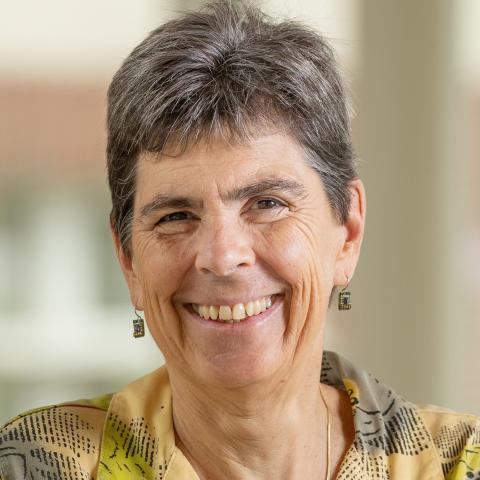
Laura Galloway
Office Address: PLSB 406
Lab Office: PLSB 440
Education
B.A., Oberlin College, 1984
Ph.D., University of California, Davis, 1994
Postdoctoral, University of Maryland, 1994-1996
Research Interests
My research uses ecological and genetical approaches to explore mechanisms of adaptation and patterns of evolutionary change in natural plant populations. Plants are sedentary and therefore cannot directly choose their growth environment or mates, they vary in their gender and potential for inbreeding, and many species are polyploid having more than two copies of each chromosome and gene. Furthermore, their population genetics and phenotypes have been molded both by their current environment and their evolutionary history, especially post glacial range expansion. My lab studies the consequences of these plant attributes for evolution using a combination of field and greenhouse studies, quantitative and ecological genetics, and genomic and bioinformatic techniques.
Current projects in my lab focus on understanding evolution in response to climate warming and range expansion that has occurred since the last glacial period. This includes using rear-edge populations, those that remain behind after glaciers retreat, as natural laboratories to study the evolutionary outcomes of climate warming, as well as studying the links between range expansion and mating system traits. We are also investigating the earliest stages of speciation – the possibility that evolution of organelle genomes, such as the chloroplast, create reproductive isolation between populations that initiates the speciation process.
For more information on research interests, see my lab webpage.
Representative Publications
López-Caamal, A., T. Gandee, L. F. Galloway, and K. B. Barnard-Kubow. 2025. Substantial structural variation and repetitive DNA content contribute to intraspecific plastid genome evolution. BMC Genomics 26: 340.
Perrier, A., M. C. Turner, and L. F. Galloway. 2025. Shifts in vernalization and phenology at the rear edge hold insight into adaptation of temperate plants to future milder winters. New Phytologist 246: 1377-1389.
Makowski, H., E. Scott, K. Lamb, and L. F. Galloway. 2024. Compensating for the corolla? Pollen exposure is not associated with pollen-collecting hair length. Annals of Botany 134: 1027-1036.
Lamb, K., C. L. Debban, and L. F. Galloway. 2024. Phylogeography and paleoclimatic range dynamics explain variable outcomes to contact across a species’ range. Molecular Ecology 33: e17450.
Makowski, H., K. Lamb, and L. F. Galloway. 2024. Support for Baker’s law: facultative self-fertilization ability decreases pollen limitation in experimental colonization. American Journal of Botany 111: e16351.